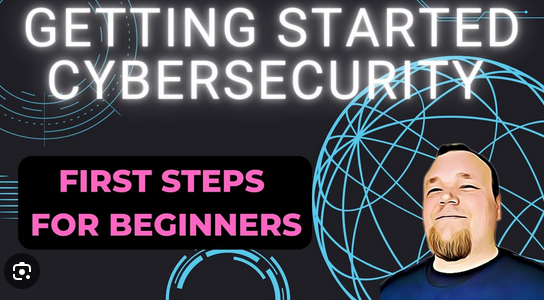1 Year of Service
100%

Hey everyone,
In today's digital age, cybersecurity is more important than ever. With cyber threats lurking around every corner, it's essential to take steps to protect yourself online. That's why I've put together this guide to help you get started with some basic cybersecurity tips and tricks.
- Use strong, unique passwords: Make sure your passwords are long and complex, and avoid using the same password for multiple accounts. Consider using a password manager to keep track of your passwords securely.
- Enable two-factor authentication (2FA): Add an extra layer of security to your accounts by enabling 2FA wherever possible. This means you'll need to provide a second form of verification, like a code sent to your phone, in addition to your password.
- Be cautious when clicking on links: Phishing attacks are a common tactic used by cybercriminals to trick you into giving away sensitive information. Always double-check the URL before clicking on a link, and never download attachments from unknown sources.
- Keep your software up to date: Make sure you regularly update your operating system, web browser, and any other software you use. Updates often contain patches for security vulnerabilities, so keeping your software up to date is crucial for staying safe online.
- Use antivirus software: Invest in a reputable antivirus program to protect your devices from malware, ransomware, and other malicious software.
These are just a few basic cybersecurity tips to help you stay safe online. Remember, the best defense against cyber threats is vigilance and awareness. Stay safe out there!
5 More advanced tips:
- Implement network segmentation: Divide your network into smaller, isolated segments to limit the spread of malware and unauthorized access. This can help contain any potential breaches and minimize the damage caused by cyber attacks.
- Conduct regular security audits: Perform thorough assessments of your systems and networks to identify vulnerabilities and weaknesses. This can help you proactively address any security issues before they're exploited by cyber attacks.
- Invest in employee training and awareness: Educate your staff about cybersecurity best practices and the potential risks they may encounter online. Encourage them to be vigilant and report any suspicious activity to the IT department immediately.
- Use a virtual private network (VPN): Protect your online privacy and security by using a VPN to encrypt your internet connection and hide your IP address. This can help prevent hackers and other malicious actors from intercepting your data while you browse the web.
- Implement a robust incident response plan: Develop a comprehensive plan outlining the steps to take in the event of a cyber attack or data breach. This should include protocols for containing the incident, notifying affected parties, and restoring systems and data to normal operation.
These advanced cybersecurity tips can help take your online security to the next level and protect you against a wider range of threats.
Feel free to share some more tips and tricks in the comments!
Last edited by a moderator: